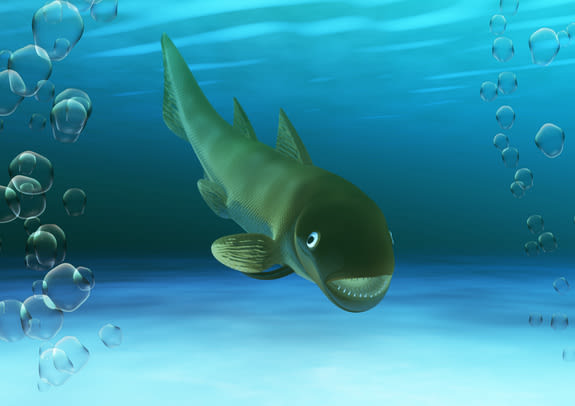400-Million-Year-Old 'Spiny Shark' Fossil Found
-
The fossilized remains of a 408-million-year-old fish species have been found in Spain, a study reports.
Researchers found scales, spines and shoulder bones of the new species (Machaeracanthus goujeti) in the town of Teruel and to the south of the city of Zaragoza. The fish lived during the Devonian period, and is a spiny shark (Acanthodii), an extinct type of fish that resembles both sharks and bony fish.
The discovery "expands our knowledge of the biodiversity that existed on the peninsula 408 million years ago, when the modern-day region of Teruel was covered by the sea," study researcher Héctor Botella, a paleontologist at the University of Valencia, Spain, said in a statement.
Little is known about the spiny sharks, other than that they only lived during the Palaeozoic Era (540 million to 250 million years ago) and really blossomed during the Devonian period (420 million to 360 million years ago).
But bones in the spiny shark group usually grow differently than the ones found here, suggesting the new species might be even more like sharks and arose during the diversification of jawed vertebrates.
Most of the fossil samples were from juveniles. The researchers estimate the biggest of these fish would have been less than a meter (3.3 feet) long.
The fossils were found in sediment layers in the Iberian Mountains. They were probably from fish that lived in a large but shallow saltwater body of water known as an epicontinental sea, the researchers say, which might have served as a breeding ground. Larger fossils were found in lower sediment layers.
The researchers also analyzed fossils from the Lower Devonian period in northern Spain and western France, which were first thought to come from the Machaeracanthus species.
The new fossils are now kept in the Paleontology Museum of Zaragoza, Spain. The findings were reported in the December 2012 issue of the journal Geodiversitas.
